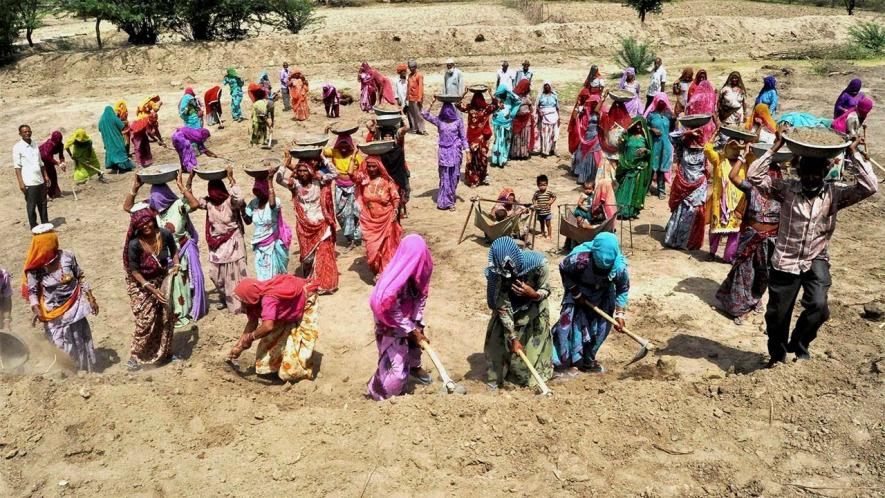Pending MGNREGA Wages Touch Rs 745 Crore in Rajasthan, Centre Yet to Release Funds

At a time when the crisis-ridden economy has pushed millions against the wall, with many not being able to make ends meet, the employment guarantee scheme (Mahatma Gandhi National Rural Employment Guarantee Act, 2005) is adding to the distress of the poor—instead mitigating it.
In Rajasthan, funds that are yet to be released for the payment of MGNREGA wages reached as much as Rs 745 crore. The Centre had promised to release funds in a week’s time about two weeks back, reported the Times of India.
The report, however, quoted MGNREGA officials as saying that it may take four to five days more to release the funds for the payment of the wages. The workers have not been getting wages since October 2.
This unfortunate state of affairs—of delayed payments—had spread to other states as well, aggravating the effects of the slowdown over the rural economy as a whole. Earlier, it was reported that the payments pending in 13 districts of Andhra Pradesh had touched Rs 865 crore. In another news, even states resorted to holding on to funds, with all states put together registering an unspent balance of over Rs 12,546 crore and pending dues of Rs 5,248 crore.
In all the cases, the reason being the same: a general fund crunch due to the crisis in the economy. As a result of which, the workers are being made to bear the brunt.
This heat is also now expressing itself in numbers, with official reports surfacing in the media. According to a Mint analysis of the consumption expenditure numbers, rural poverty rose nearly 4 percentage points between 2011-12 and 2017-18 to 30%. The declining trend also had its effects on the consumer spending, which declined for the first time in 40 years—with rural India’s monthly spending on food falling to Rs 580 in 2017-18 – a near 10% decline from Rs 643 in 2011-12.
Kishan Parikh, a local activist in Rajasthan’s Sikar, who works with MGNREGA workers, explains the correlations among all of this. “The MGNREGA worker is also a consumer who needs food to eat and clothes to wear,” he says, “if the wages are not paid to the workers, it affects the whole village as their sale then goes down”.
According to Parikh, it is even worse when the economy is in doldrums. “Owing to less demand, the textile industry in Surat is nearly collapsed as a result many are returning to their villages in Rajasthan in search of work,” he said. However, “even the government-sponsored scheme has failed them”.
The latest data available on the official MGNREGA website speaks the same. In the state of Rajasthan only, nearly 40 lakh households were refused work under the scheme despite having demanded it, as per the data available, accessed on December 23. The figure is staggering since it is only of a single state. Over 1.79 crore households demanded work while only 1.39 crore were provided work.
The situation is no different at the national level, with over 16 crore households demanding work and only 12.8 crore been provided work leaving well over 3.24 crore people who were refused work, as per the official data available, accessed on December 23.
What this means is that first, the Indian state fails millions by refusing them work under the employment guarantee scheme and if that is not enough, the wages are being delayed by months.
There’s no relief in sight for the MGNREGA workers, added Parikh.
Also read: BJP Government’s Efforts to Reduce MGNREGA to Just Another Scheme
Get the latest reports & analysis with people's perspective on Protests, movements & deep analytical videos, discussions of the current affairs in your Telegram app. Subscribe to NewsClick's Telegram channel & get Real-Time updates on stories, as they get published on our website.
























